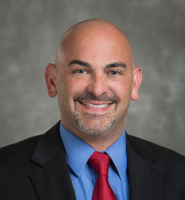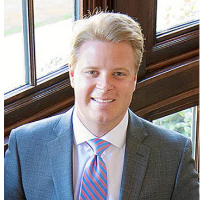 Knoxville DUI-DWI Lawyers, Tennessee
Knoxville DUI-DWI Lawyers, Tennessee
Sponsored Law Firm
-
 x
x

Click For More Info:
-
Keches Law Group
122 Dean Street Taunton, MA 02780» view mapSocial Security, Personal Injury, Workers Comp. Protecting Your Rights
Our team of experienced personal injury attorneys has over 130 years of combined experience representing individuals and families injured due to the negligence of others.
800-713-8650
Sponsored Lawyers
1-6 of 6 matches
Criminal, DUI-DWI, Misdemeanor, Felony
Mr. Lewis graduated from the University of Tennessee College of Law in May of 2015. While there he conducted legal research for the Knox County Public Defender's Office. He is a member of the Order of the Barristers. He and his loving wife Emily raise their family in East Tennessee where they can be found at the library, on the trampoline, or riding the rides at Dollywood.
(more)Criminal, DUI-DWI, White Collar Crime, Felony, Misdemeanor
Knoxville Tennessee Criminal Defense Lawyer Jeffrey Coller handles both state and federal charges including misdemeanors and felonies. He focuses on cases involving search and seizure, suppression of evidence, and standardized field sobriety testing. He knows and understands how critical your case is to you. To schedule a free consultation with Attorney Coller, visit his website, or call 865-281-1000.
(more)Criminal, DUI-DWI, Accident & Injury, Civil Rights, Wrongful Death
The Baker Law Firm and our founding attorney, Lance K. Baker, can help you resolve even the most complex and challenging legal problems. Our firm's founding attorney has garnered recognition both nationally and locally. In the past several years he has received the following designations: Listed in The National Trial Lawyers 2017 Top 40 Under 40 in the Criminal Defense category Listed in The National Trial Lawyers 2018 Top 40 Under 40 in the Civil Plaintiff Lawyers category Named Top Male Rising Star of Knoxville by the Cystic Fibrosis Foundation Honored in 2019 as one of Knoxville's top DUI defense attorneys by Cityview magazine Honored in 2021 as one of Knoxville's top Civil Rights attorneys by Cityview magazine Honored in 2022 as one of Knoxville's top attorneys by CityView magazine in DUI Defense, Constitutional Law/Civil Rights, Personal Injury- Auto Accidents, Consumer Protection, Class Action, and Antitrust Selected as one of 2022 Mid-South's Rising Stars by Super Lawyers Selected as one of 2023 Mid-South's Rising Stars by Super Lawyers Lance is actively involved in the community. For instance, he is a panelist on Fox 43's “Heavy Hitters” show and frequently offers guest political commentary on WBIR-TV. He is also a member of the Knoxville Bar Association and the Tennessee Bar Association.
(more)Criminal, Personal Injury, Social Security, DUI-DWI, Accident & Injury
Our firm’s founding attorney, David Sexton, is a member of the Tennessee Bar and a graduate of the University of Tennessee College of Law. He loves the people here in Knoxville and works hard every day to help them from a legal standpoint while supporting his community. We also practice multiple areas of law, and we can help you if you: Sustained serious injuries in a truck or auto accident Are facing bankruptcy or foreclosure because of crushing debt Sustained injuries or lost a loved one because of the negligence of another person Are trying to defend yourself against criminal charges Are contemplating divorce or considering taking a child custody action Were injured in a workplace accident or succumbed to an illness due to a work-related condition Need help with a Social Security Disability claim For a confidential consultation with a lawyer who wants what is best for your case, contact us today. We help clients throughout all of eastern Tennessee, and we are here to help with whatever legal situation you are dealing with.
(more)


 Sean Flaherty Taunton, MA
Sean Flaherty Taunton, MA AboutKeches Law Group
AboutKeches Law Group Practice AreasExpertise
Practice AreasExpertise




